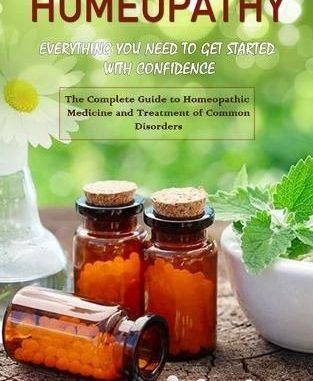
When it comes to alternative medicine, homeopathy is a topic that often sparks heated debates. Some swear by its effectiveness, while others dismiss it as pseudoscience. In this article, we will dive deep into the world of homeopathy to uncover what you need to know about this controversial practice.
What is Homeopathy?
Homeopathy is a holistic approach to healing that was developed in the late 18th century by Samuel Hahnemann, a German physician. The central tenet of homeopathy is the principle of like cures like, which means that a substance that causes symptoms in a healthy person can be used to treat similar symptoms in a sick person.
How Does Homeopathy Work?
Homeopathic remedies are highly diluted substances that are prepared through a process known as potentization. This involves diluting a substance in water or alcohol multiple times, followed by vigorous shaking or succussion. Proponents of homeopathy believe that this process enhances the healing properties of the original substance, even if the final remedy contains little to no trace of the original substance.
Common Homeopathic Remedies
Homeopathy offers a wide range of remedies for various ailments, such as Arnica for bruises and muscle soreness, Belladonna for fever and inflammation, and Chamomilla for teething in infants. These remedies are typically administered in the form of pellets, tablets, or liquid solutions.
Is Homeopathy Effective?
The effectiveness of homeopathy is a highly debated topic in the medical community. Proponents of homeopathy argue that it has helped them with various health issues, from allergies to chronic pain. However, many scientific studies have found little to no evidence to support the claims of homeopathy.
The Placebo Effect
One of the main criticisms of homeopathy is that any perceived benefits may be attributed to the placebo effect, where a patient’s belief in the treatment can lead to improvements in their symptoms. It is important to note that the placebo effect is a powerful phenomenon that can influence the outcomes of any treatment, including homeopathy.
Regulation of Homeopathy
Homeopathy is regulated differently in various countries. In some places, homeopathic remedies are classified as over-the-counter drugs and can be freely sold to the public. In other countries, homeopathy may be considered complementary or alternative medicine and may require a prescription from a qualified practitioner.
Consulting a Qualified Practitioner
If you are considering trying homeopathy, it is crucial to consult a qualified practitioner who has been trained in homeopathic medicine. They can conduct a thorough evaluation of your health and recommend the most appropriate remedies for your specific condition.
Conclusion
While homeopathy remains a controversial practice, it continues to attract a dedicated following of individuals who swear by its healing properties. Whether you are a skeptic or a believer, it is essential to approach homeopathy with an open mind and to seek guidance from a qualified practitioner before trying any remedies.
Copyright © 2023 – All rights reserved
